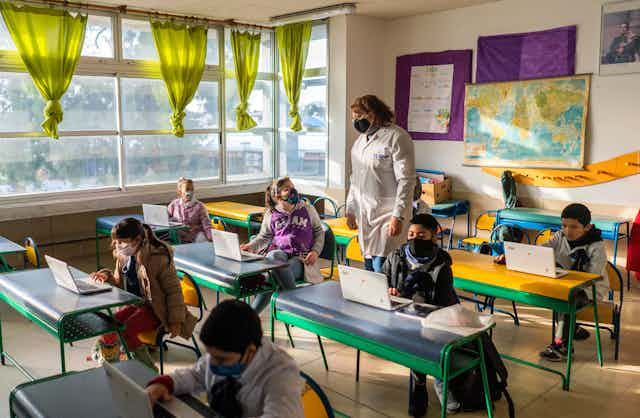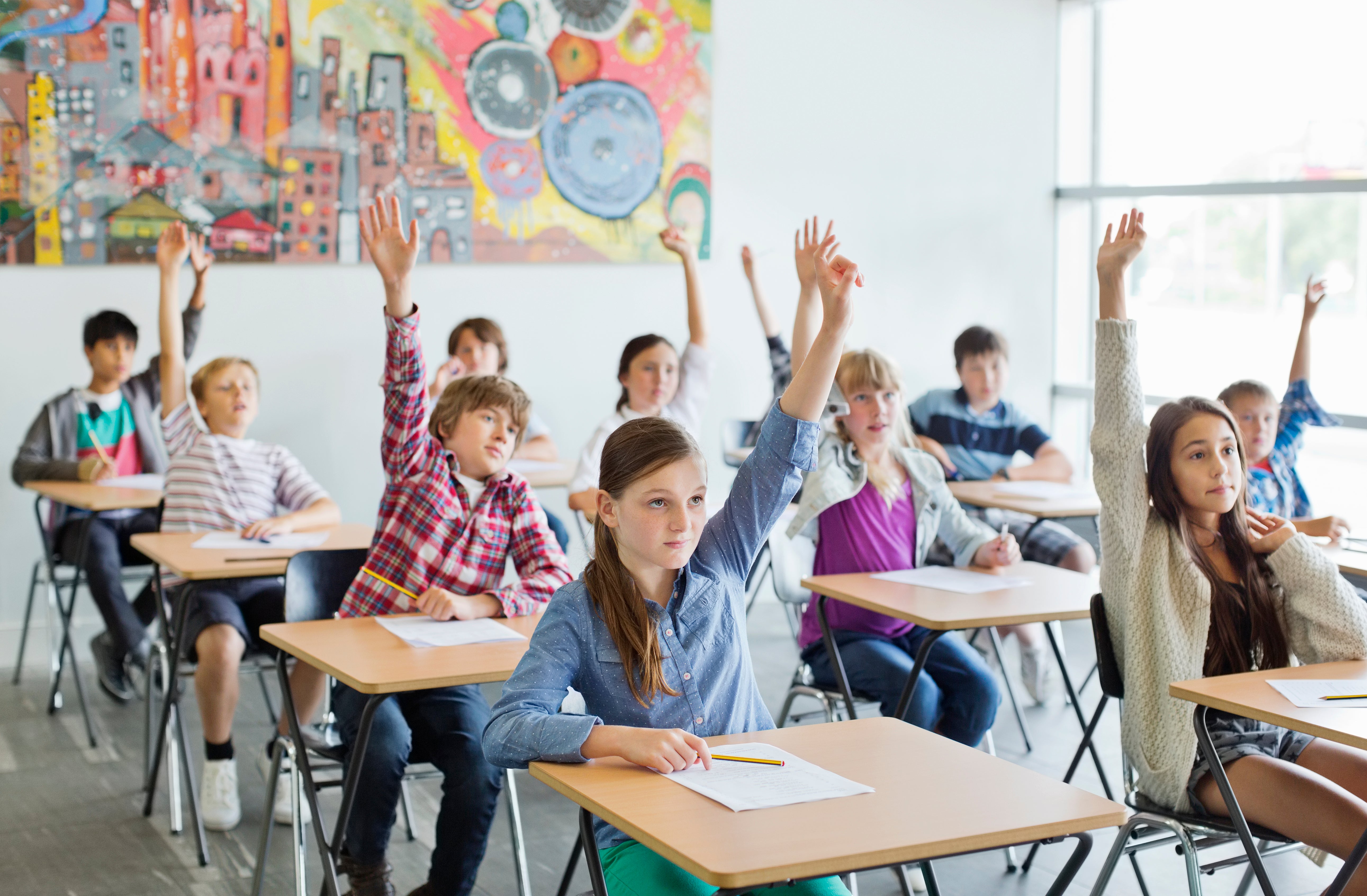Fundraising Concepts to Conserve Temecula Schools and Programs
Wiki Article
The Influence of School Environments on Academic Success and Personal Wellness
The design of educational rooms, including all-natural illumination and ergonomic furnishings, can enhance trainees' concentration and comfort. Exactly how can colleges tactically enhance these facets to better support their trainees?Physical Design and Design
Just how does the physical format and design of a college impact academic success? The setup and visual of an institution setting can dramatically affect pupils' discovering results.Natural lights and efficient ventilation systems are crucial in boosting cognitive function and reducing absence. Studies have actually shown that class with sufficient all-natural light improve student focus and reduce feelings of drowsiness. Ergonomic furniture tailored to trainees' demands can stop physical discomfort, allowing for extended emphasis and engagement in academic tasks.
Accessibility to exterior rooms and visually pleasing environments likewise play a vital duty - Save Temecula Schools. Environment-friendly spaces and properly maintained school premises provide opportunities for physical exercise and psychological leisure, both of which are essential for preserving high degrees of scholastic efficiency. In essence, a thoughtfully developed physical environment can function as a catalyst for scholastic quality, cultivating an ambience that sustains both training and discovering
Class Atmosphere
An atmosphere that cultivates a sense of security, inclusivity, and mutual regard motivates trainees to engage more actively in their learning processes. The atmosphere of a classroom, consisting of facets such as lights, sound levels, and seating arrangements, can significantly influence pupil concentration and inspiration.Furthermore, the classroom atmosphere ought to support a culture of cooperation and open communication. When students really feel comfy expressing their ideas and asking inquiries, they are most likely to involve deeply with the material and develop important believing skills - Save Temecula Schools. Peer communications and team tasks can enhance understanding by fostering and supplying varied perspectives team effort
Furthermore, establishing constant regimens and clear assumptions can produce a structured environment that allows pupils to concentrate on their research studies. By decreasing uncertainty and giving a predictable framework, trainees can better handle their time and responsibilities. Inevitably, a positive classroom atmosphere not just boosts scholastic performance yet likewise adds to the total health of students, preparing them for future educational and individual undertakings.
Teacher-Student Relationships
Building on the value of a favorable class environment, the relationships in between pupils and instructors play a critical function fit scholastic success. A healthy teacher-student connection cultivates a learning environment where pupils really feel valued, recognized, and sustained, which significantly improves their inspiration and interaction. When trainees regard their educators as understanding and approachable, they are most likely to get involved proactively in course and seek assistance when needed, contributing to a deeper understanding of the topic.
This trust enables students to reveal their concerns and concepts freely, cultivating a joint understanding atmosphere. In essence, strong teacher-student connections are a foundation of instructional success, playing an essential role in both scholastic achievement and individual development.
Peer Interactions
Peer interactions substantially affect scholastic success by shaping a student's cognitive and social advancement. Within the school atmosphere, peer partnerships offer as a fundamental element for learning and individual development. Positive peer interactions can enhance a pupil's motivation and involvement in academic tasks through collaborative understanding and mutual support. When students interact in group setups, they exchange concepts, resolve issues collectively, and create vital thinking skills. Such communications cultivate a feeling of belonging and neighborhood, which is important for emotional well-being and academic willpower.
Effective peer interactions likewise add to the development of essential life abilities, such as conflict, teamwork, and interaction resolution. These social expertises are critical for both scholastic success and individual health, underscoring the relevance of promoting favorable peer dynamics within the institution setting.
After-school Activities
Participating in extracurricular tasks plays a critical role in a student's scholastic success and individual advancement. These activities, ranging from sporting activities teams to debate clubs, provide pupils opportunities to develop beneficial skills such as leadership, time monitoring, and teamwork. Research study constantly suggests that trainees who join extracurricular tasks tend to achieve greater scholastic performance. This relationship is frequently associated to the structured environment and the technique needed to balance both scholastic and extracurricular commitments.Moreover, extracurricular participation cultivates a feeling of belonging and neighborhood, which is essential for individual wellness. Taking part in group activities enables pupils to construct and enhance social media networks, enhancing their social and emotional knowledge. These communications are essential for establishing interpersonal skills that are beneficial in both scholastic and future professional environments.
Additionally, after-school activities provide a positive outlet for trainees to discover their rate of interests and passions past the common curriculum. This expedition can lead to the exploration of brand-new abilities and possible occupation paths, further motivating pupils to involve even more deeply in their academic work. In verdict, the role of after-school activities extends beyond plain recreation; they are important to promoting an alternative instructional experience that promotes both academic success and personal growth.
Conclusion
Attentively created physical layouts and classrooms, along with favorable teacher-student connections and useful peer interactions, significantly improve pupil inspiration and involvement. These elements collectively emphasize the importance of creating and maintaining ideal school settings for the benefit of trainees' personal and scholastic development.Eventually, a positive class ambience not just improves scholastic efficiency yet also contributes to the general well-being of students, preparing them for future educational and personal endeavors.

Report this wiki page